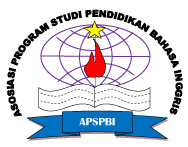Digital Storytelling for Improving ESPs Students Motivation and Autonomy During Covid-19 Pandemic: A Conceptual Paper
Abstract
Covid-19 pandemic has changed the way ESP (English for Specific Purposes) teachers and students interact in the classrooms. As teachers and students need to use online method to teach and learn English, an alternative strategy is needed to maintain students motivation and autonomy. One of alternatives which can be taken by teachers to improve students motivation and autonomy is digital storytelling. It is because digital storytelling has been considered effective to improve students motivation and autonomy. Therefore, the present study is a conceptual paper which will discuss the possibilities of digital storytelling integration to ESP classes. In addition, the present study aims to discuss strategies that can be taken to apply digital storytelling to ESP classrooms.
Keywords
References
Adara, R. A. (2020). Enhancing EFL Learners Motivation through Songs. IJEE (Indonesian Journal of English Education), 7(2). https://doi.org/10.15408/ijee.v7i2.17321
Adara, R., & Haqiyah, A. (2020). The Effects of Integrating Digital Storytelling to Students Motivation. Edukasi: Jurnal Pendidikan Dan Pengajaran, 131145. https://doi.org/10.19109/ejpp.v7i2.6023
Adara, R. A., & Najmudin, O. (2020). ANALYSIS ON THE DIFFERENCES IN EFL LEARNERS DEMOTIVATING FACTORS AFTER COVID 19 PANDEMIC. Tadib, 23(2). https://doi.org/10.31958/jt.v23i2.2373
Almusharraf, N. (2020). Teachers perspectives on promoting learner autonomy for vocabulary development: A case study. Cogent Education, 7(1). https://doi.org/10.1080/2331186X.2020.1823154
Aktas, E., & Yurt, S. U. (2017). Effects of Digital Story on Academic Achievement, Learning Motivation and Retention among University Students. International Journal of Higher Education, 6(1). https://doi.org/10.5430/ijhe.v6n1p180
Barak, M., Watted, A., & Haick, H. (2016). Motivation to learn in massive open online courses: Examining aspects of language and social engagement. Computers and Education, 94. https://doi.org/10.1016/j.compedu.2015.11.010
Benson, P. (2007). Autonomy in language teaching and learning. Language Teaching, 40(1). https://doi.org/10.1017/S0261444806003958
Castillo-Cuesta, L., Quinonez-Beltran, A., Cabrera-Solano, P., Ochoa-Cueva, C., & Gonzalez-Torres, P. (2021). Using Digital Storytelling as a Strategy for Enhancing EFL Writing Skills. International Journal of Emerging Technologies in Learning, 16(13). https://doi.org/10.3991/ijet.v16i13.22187
Chen, C. (2021). Using Scaffolding Materials to Facilitate Autonomous Online Chinese as a Foreign Language Learning: A Study During the COVID-19 Pandemic. SAGE Open, 11(3). https://doi.org/10.1177/21582440211040131
Chong, S. W., & Reinders, H. (2021). Autonomy of English Language Learners: A Scoping Review of Research and Practice. TESOL Quarterly. https://doi.org/10.31219/osf.io/gn4w3
Deci, E., & Ryan, R. (1985). Intrinsic Motivation and Self-Determination in Human Behavior. Perspectives in Social Psychology.
Dewi, Y. N., Masril, M., Nafan, E., Hendrik, B., Veri, J., Munawwaroh, K., Silfia, E., & Widyatama, A. (2019). The Development of E-Module English Specific Purpose based on Computer Application for Vocational High School Students. Journal of Physics: Conference Series, 1364(1). https://doi.org/10.1088/1742-6596/1364/1/012043
Hartshorn, J. K., & McMurry, B. L. (2020). The Effects of the COVID-19 Pandemic on ESL Learners and TESOL Practitioners in the United States. International Journal of TESOL Studies. https://doi.org/10.46451/ijts.2020.09.11
Kim, S. (2014). Developing autonomous learning for oral proficiency using digital storytelling. Language Learning and Technology, 18, 2035.
Lin, L., & Reinders, H. (2019). Students and teachers readiness for autonomy: beliefs and practices in developing autonomy in the Chinese context. Asia Pacific Education Review, 20(1). https://doi.org/10.1007/s12564-018-9564-3
LoBello, C. (2015). The Impact of Digital Storytelling on Fourth Grade Student Motivation to Write.Palfreyman, D. M., & Benson, P. (2019). Autonomy and Its Role in English Language Learning: Practice and Research. https://doi.org/10.1007/978-3-319-58542-0_38-1
Salmani-Nodoushan, M. A. (2020). English for specific purposes: Traditions, trends, directions. Studies in English Language and Education, 7(1). https://doi.org/10.24815/siele.v7i1.16342
Sintema, E. J. (2020). Effect of COVID-19 on the performance of grade 12 students: Implications for STEM education. Eurasia Journal of Mathematics, Science and Technology Education, 16(7). https://doi.org/10.29333/EJMSTE/7893
Wang, C., Pan, R., Wan, X., Tan, Y., Xu, L., Ho, C. S., & Ho, R. C. (2020). Immediate psychological responses and associated factors during the initial stage of the 2019 coronavirus disease (COVID-19) epidemic among the general population in China. International Journal of Environmental Research and Public Health, 17(5). https://doi.org/10.3390/ijerph17051729
DOI: 10.55215/jetli.v4i1.4818
 Abstract views : 435
Abstract views : 435
Refbacks
- There are currently no refbacks.
Copyright (c) 2022 Journal of English Teaching and Linguistics Studies (JET Li)

This work is licensed under a Creative Commons Attribution-NonCommercial-ShareAlike 4.0 International License.



